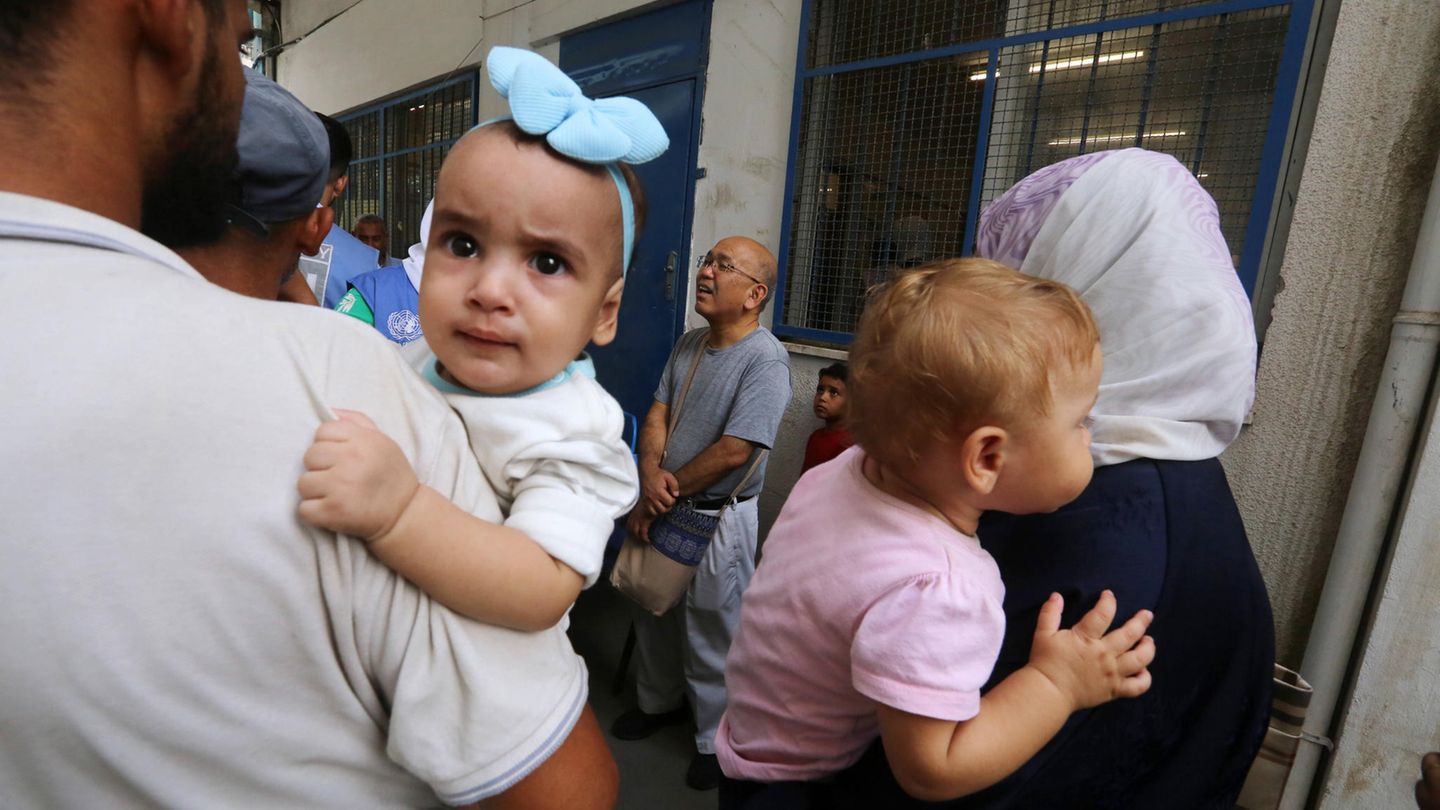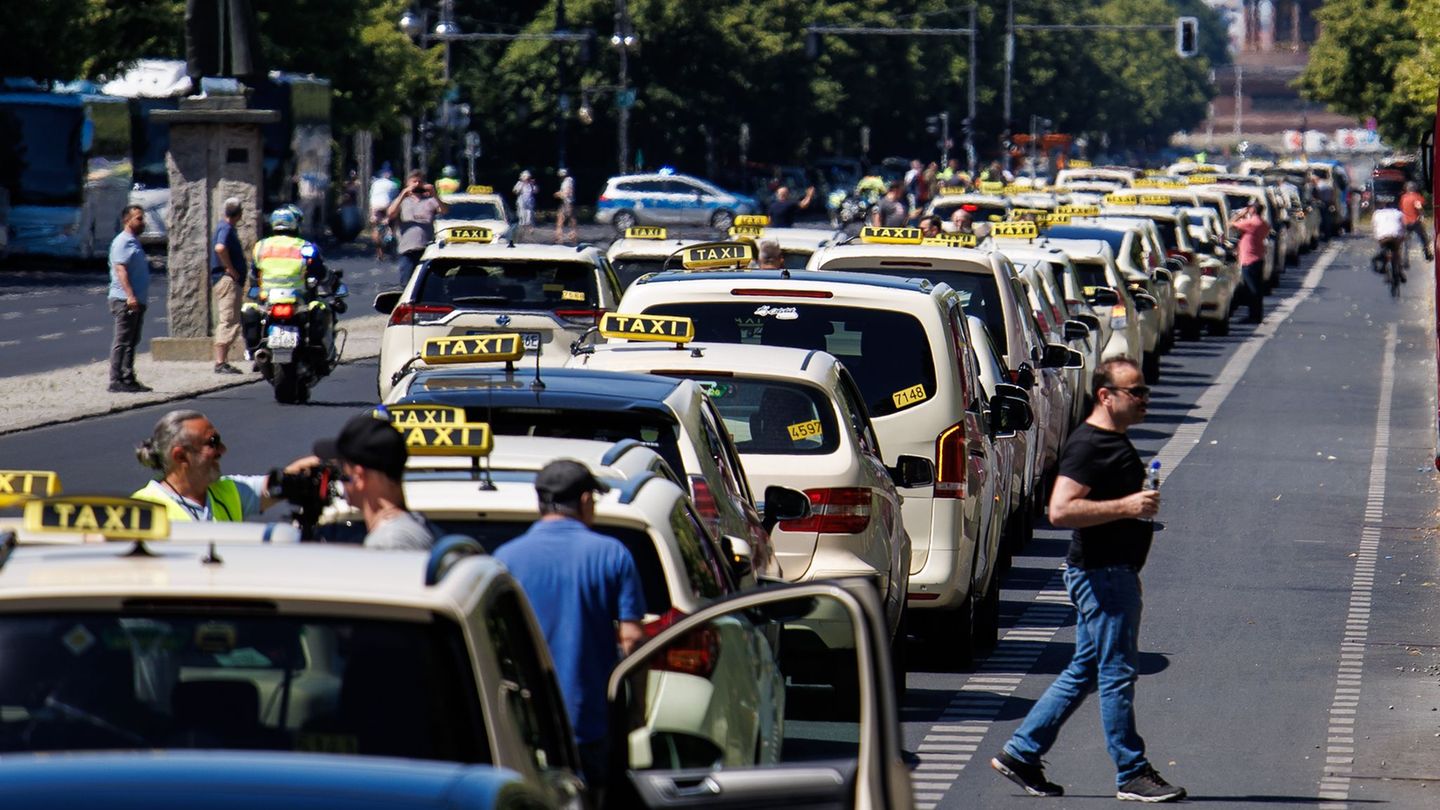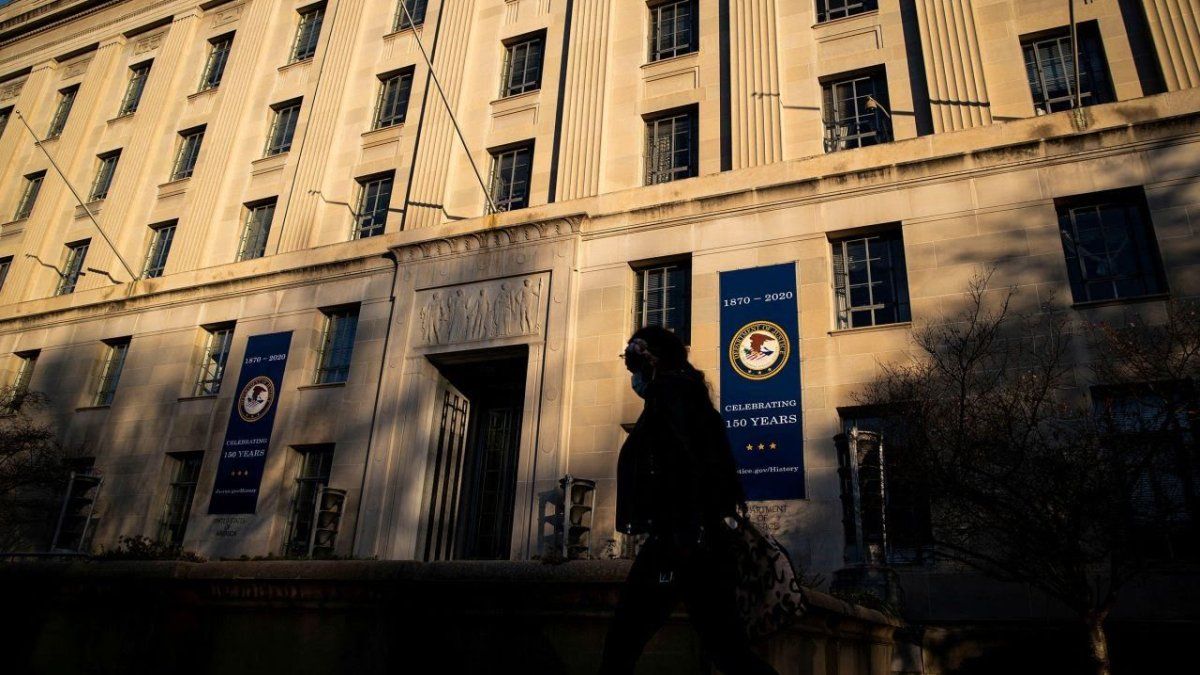Hundreds of thousands of children are to be vaccinated in the Gaza Strip. To this end, Israel’s army now wants to temporarily suspend its fighting in some areas.
The campaign to vaccinate hundreds of thousands of children against the polio virus has begun in the center of the embattled Gaza Strip. This was confirmed by the World Health Organization (WHO) in Geneva and the Ministry of Health in Gaza. The mass vaccination is being carried out by the local health authorities, the UN Children’s Fund Unicef and the UN Relief and Works Agency for the Palestinians UNRWA, said a WHO spokeswoman.
A hospital spokesman in Deir al-Balah told the German Press Agency that vaccinations would initially be carried out in several centers and schools in the central section of the coastal strip. This also applies to several refugee quarters in the area.
Vaccination campaign to last one week
During the vaccination campaign, which will last a good week in total and is to be extended to other parts of the Gaza Strip, the Israeli army wanted to observe temporary and localized breaks in fighting.
According to the World Health Organization (WHO), clinics, doctor’s offices and mobile teams are to vaccinate around 640,000 children in the Gaza Strip against the highly contagious virus, which can lead to the paralysis typical of polio. Two doses of the vaccine are usually administered four weeks apart.
After the first case of polio in 25 years was recently reported in the disputed Palestinian territory, the vaccination campaign is intended to prevent a massive outbreak of the disease.
Poor hygienic conditions in the Gaza Strip
Since the beginning of the Gaza war following the Hamas terrorist attack on the Israeli border area on October 7 last year, many babies in the isolated coastal area have not been able to be vaccinated. The poor hygienic conditions in the Gaza Strip, where clean water is scarce, many people are stuck in very small spaces and numerous displaced people are crowded together, can contribute to the rapid spread of the disease, according to the WHO.
At a press conference held by the Hamas-controlled health authority in the Gaza Strip on Saturday, some children were given their first vaccination before the official start of the campaign. The WHO spoke of an opening ceremony.
In the past, the Israeli military has repeatedly announced breaks in its activities in areas of the Gaza Strip lasting several hours, mostly to allow more aid to be delivered there. It was initially unclear whether the discovery of the bodies of six hostages in the Gaza Strip by the Israeli army would have an impact on the announcements of a break in fighting.
Benjamin Netanyahu: no ceasefire, only pauses in fighting
According to his office, Prime Minister Benjamin Netanyahu stressed that the planned pause in fighting was not a ceasefire in the traditional sense. Such a ceasefire was agreed in November last year as part of a deal between the Israeli government and Hamas. During this week-long ceasefire, around 100 hostages were released in exchange for 240 Palestinian prisoners.
Only safe areas for vaccinations and a humanitarian corridor would be set up through which people could pass safely on their way to vaccinations, Netanyahu’s office said.
Polio is incurable
Polio is also called infantile paralysis because the pathogen was once so widespread that contact with it usually occurred in childhood, and small children in particular were affected by paralysis. The highly contagious virus is usually spread via contaminated hands as a so-called smear infection, and in countries with inadequate hygiene standards also via contaminated water.
Only in about one in 200 cases does an infection lead to the irreversible paralysis typical of polio – and only in unvaccinated people. There is currently no cure.
According to the WHO, the global vaccination campaigns initiated in 1988 have so far saved around 20 million people from paralysis and one and a half million from death. Before vaccinations were introduced, there were thousands of cases and hundreds of deaths every year in Germany alone. However, vaccination rates are now far too low in many places.
Source: Stern
I have been working in the news industry for over 6 years, first as a reporter and now as an editor. I have covered politics extensively, and my work has appeared in major newspapers and online news outlets around the world. In addition to my writing, I also contribute regularly to 24 Hours World.




